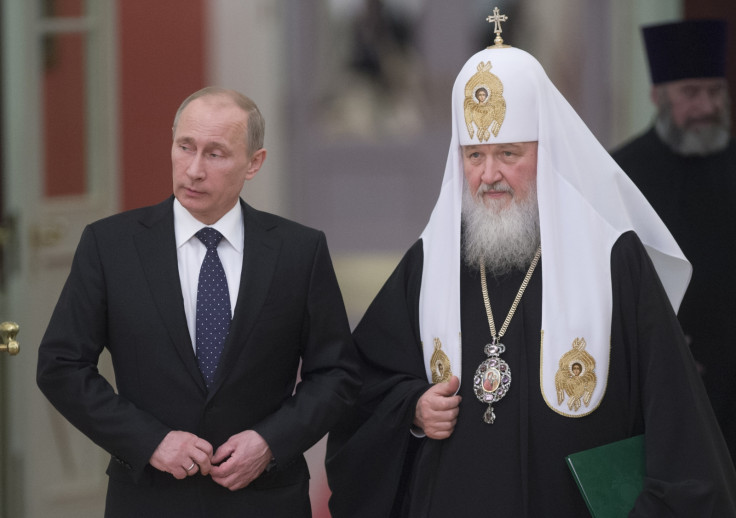Queen to welcome key Putin ally attracting criticism from MPs
The trip has been described as 'propaganda' for a man who described Russian behaviour in Syria as 'noble and honest'.

The Queen has attracted criticism as she is due to welcome one of Vladimir Putin's closest allies and supporters of Russia's actions in Syria.
Her Majesty, in her capacity as the supreme governor of the Church of England, will meet with Patriarch Kirill, head of the Russian Orthodox church, when he arrives in the UK next Saturday (15 October).
The visit will celebrate the 300th anniversary of the presence of Russian Church on the British Isles, however prominent MPs have labelled the visit as a "propaganda" trip for a man who described Russian behaviour in Syria as "noble and honest".
"The patriarch's close links to President Putin and his vocal support for his policies make it troubling that he is being received with such ceremony in the UK," John Woodcock, chairman of Labour's backbench defence committee, said to the Times.
"Russia is very deliberately committing grotesque war crimes on a daily basis in Syria and has shown no remorse for annexing part of Ukraine.
"This is not the moment to be giving President Putin's key allies the red carpet treatment at Buckingham Palace."
Labour's Alison McGovern, co-chair of the parliamentary Friends of Syria group, told the publication, "people who spread propaganda for Putin should not be rewarded with invitations to the palace".
Details of Kirill's meeting with the Queen have not been announced, but the Diocese of Sourzeh confirmed he will visit Lambeth and Buckingham Palace.
He is also due to lead a service at a Russian Orthodox cathedral in London next Sunday (16 October) and meet the Archbishop of Canterbury on Tuesday (18 October).
Kirill is the spiritual leader for 150 million Russian Orthodox Christians, including about 300,000 in Britain, and is the first Russian patriarch to visit the UK, reported the Times.
Though his ties to Putin – calling his rule "a miracle of god" at the 2012 election – have received criticism, some viewed Kirill's visit as an opportunity to improve relations with Russia.
"There is this massive gulf of understanding between the West and Russia," an ex-military source told the Times.
"If he is able to have a substantive conversation then that is a pretty good thing."
© Copyright IBTimes 2025. All rights reserved.






















